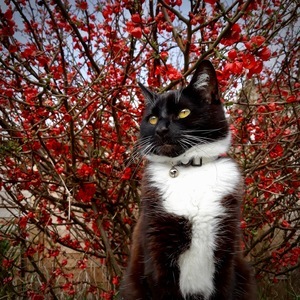17835481
GSCE English Language and Literature - Key Words and Terminology
Description
No tags specified
Quiz by Sarah Stanley, updated more than 1 year ago
More
Less

|
Created by Sarah Stanley
over 5 years ago
|
|
Resource summary
Question 1
Question
What is an Allegory?
Answer
-
An important statement
-
A question asked to create a dramatic effect, rather than to get an answer
-
A story, poem or picture that can be interpretted to reveal a hidden meaning
Question 2
Question
What is The Rule of Three:
Answer
-
A writing principle suggesting that a trio of events or characteristics, is more humerous, satisfying and effective than one or two.
-
Special words used by a group that others cannot understand
-
Words or phrases that change the feel of a sentence, through evoking a certain emotion.
Question 3
Question
Imperative:
Answer
-
Meaningless
-
Funny
-
Important
Question 4
Question
Jargon: Special [blank_start]words[blank_end] or phrases used by a group that others cannot [blank_start]understand[blank_end]
Answer
-
words
-
symbols
-
letters
-
understand
-
see
-
find
Question 5
Question
Fable: A short [blank_start]story[blank_end], typically with animals, usually conveying a [blank_start]moral[blank_end]
Answer
-
story
-
picture
-
sentence
-
moral
-
piece of music
-
rhythm
Question 6
Question
A rhetorical question is a question asked to create a dramatic effect, rather than get an answer
Answer
- True
- False
Question 7
Question
[blank_start]Dialogue[blank_end]: A conversation between two or more characters
Answer
-
Dialogue
-
Words
-
Sentences
Question 8
Question
What is Satire?
Answer
-
The use of humor to critize people or stupidity.
-
An important statement
-
How a piece of writing is put together
Question 9
Question
Refers to word or phrases the change the feel of a sentence, through evoking a particular emotion
Answer
-
Hyperbole
-
Images
-
Emotive Language
Question 10
Question
Engaging with the actions of others, often in resistance
Answer
-
Passive
-
Present Tense
-
Active
Question 11
Question
Passive: Acting upon someones actions, usually in a defensive manner
Answer
- True
- False
Question 12
Question
Irony: Events that seem deliberately [blank_start]contrary[blank_end], and often seem amusing
Answer
-
contrary
-
funny
-
weird
Question 13
Question
Hyperbole: Exaggerated statements that aren't meant to be taken [blank_start]literally[blank_end]
Answer
-
literally
-
in a joking way
Question 14
Question
[blank_start]Format[blank_end]: How a text is set out
Answer
-
Format
-
Image
-
Structure
Question 15
Question
Context: Helps understand how and why a text was written
Answer
- True
- False
Question 16
Question
[blank_start]Layout[blank_end]: How a text is laid out to capture attention and interest
Answer
-
Layout
-
Audience
-
Context
Question 17
Question
[blank_start]Structure[blank_end]: How a piece of writing is put together
Answer
-
Structure
-
Format
-
Colloquial
Question 18
Question
Images: An important statement
Answer
- True
- False
Question 19
Question
What is Target Audience?
Answer
-
Helps understand how and why a text was written
-
Who the text is specifically aimed at
-
How a text is set out
Question 20
Question
[blank_start]Audience[blank_end]: General set of people who are liable to read the text.
Answer
-
Audience
-
People
-
Jargon
Question 21
Question
What is Generalised?
Answer
-
Depends on the following or preceding text to make sense
-
Not true or reliable, based on personal accounts rather than research
-
Make a general statement Make something more widespread and applicable to a wider audience
Question 22
Question
[blank_start]Contextual[blank_end]: Depends on the following or preceding text to make sense
Answer
-
Anecdotal
-
Contextual
-
Layout
Question 23
Question
What is Anecdotal?
Answer
-
Not true or reliable, based off of personal accounts rather than research
-
How a piece of writing is put together
-
Special words or phrases, used by a specific group of people that others cannot understand
Want to create your own Quizzes for free with GoConqr? Learn more.
